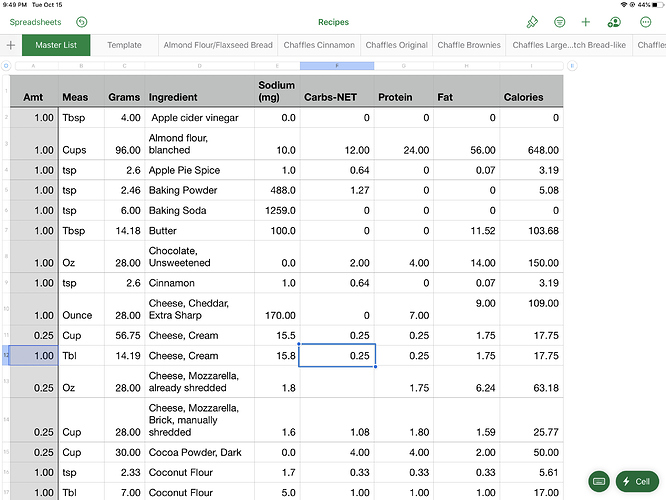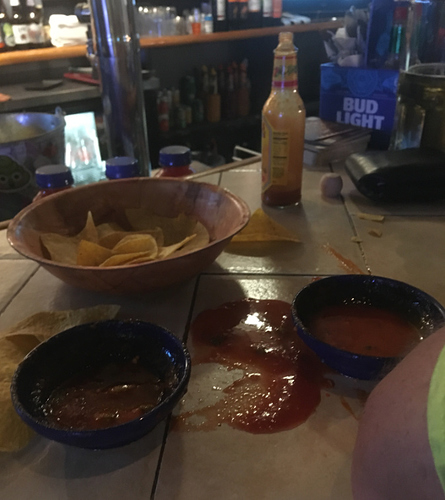I created a spreadsheet with all my most commonly used ingredients. I’ve added formulas that adjust the macros based on the quantity entered. .
Then I copy each of the ingredient’s row in a recipe to a new sheet so I just have to adjust the quantity. Then does the calcs for the whole recipe, then for each portion entered.
However, many of the macros for the ingredients vary, depending on the website you use. The one I use most is Fat Secret, but even within a category, their macros vary.
What sources do you trust to have the most accurate info?
Here’s a screenshot of the Numbers spreadsheet in case you’re curious. And if anyone’s interested in a copy (use at your own risk, it’s a work in progress), let me know. It’s in Numbers for the iPad, but it would probably open in other spreadsheet programs.
Also, I wonder if it could be somehow converted to an interactive form and posted on ketogenicforums.com so we could build it together. It may not be something anyone except a spreadsheet nerd like me would want. There are probably apps out there, but I like having only the info I want and that I can copy to another sheet to create custom recipes that I can tweak.



 While I’m not sure, I’m guessing that within the Discourse software, there is not the functionality that would allow an interactive thing, that would allow multiple people to edit it.
While I’m not sure, I’m guessing that within the Discourse software, there is not the functionality that would allow an interactive thing, that would allow multiple people to edit it.


 … I’m in love
… I’m in love 